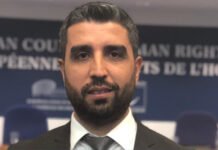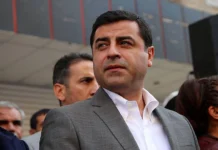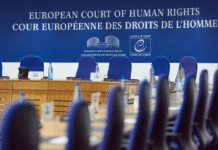Former co-chair of the Peoples’ Democratic Party (HDP) Figen Yüksekdağ, who has been in prison since November 2016 on terrorism-related charges, was escorted to her father’s funeral by the gendarmerie yesterday, Turkish media reported.
Yüksekdağ’s father, Mevlüt Yüksekdağ passed away on Saturday from a heart attack. After petitioning the prosecutor’s office Yüksekdağ was allowed to attend the funeral in Adana.
Yüksekdağ was arrested together with HDP co-chair Selahattin Demirtaş and seven other party members. They were charged with “leading a terrorist organization,” “disseminating terrorist propaganda,” “violating the law on meetings and demonstrations” and “provoking hatred and enmity among the public.”
Demirtaş, along with Yüksekdağ, remains in prison despite a European Court of Human Rights ruling in November 2018 saying Demirtaş’s pre-trial detention was politically motivated and ordering his release.
The arrest of HDP deputies was the start of the Turkish government’s ongoing assault on the party and part of a broader pattern of politically motivated prosecutions and incarcerations in the wake of a July 15, 2016 coup attempt.
While members of parliament usually enjoy immunity from prosecution for their political activities in office, the arrest and detention of HDP deputies is based on a provisional constitutional amendment in May 2016 that lifted their parliamentary immunity.
Before parliament adopted the constitutional amendment, in 2015 and 2016 President Recep Tayyip Erdoğan had made several speeches pushing for them to be prosecuted and suggesting that the party should not be in parliament because it was indistinguishable from the outlawed Kurdistan Workers’ Party (PKK).
The PKK has been leading an armed insurgency against Turkey’s security forces since the ’80s in a campaign that has claimed the lives of some 40,000 people. The group is listed as a terrorist organization by Turkey, the European Union and the US.
International bodies including the Council of Europe’s Venice Commission, which advises on constitutional matters, strongly criticized the way the deputies’ parliamentary immunity was lifted.















